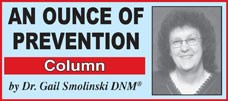Don't you love that special grilled flavor of barbecued food? A barbecue can make an ordinary meal seem especially tantalizing and tasty! However, in hot weather, it is especially important to consider food safety. In order to prevent food-borne illness and to enjoy a healthy barbecue season, let's review some safety and nutrition tips.
SPRING TUNE-UP
Firstly, prepare your BBQ for the summer season. Clean it thoroughly, inside and out. Clean the venturi tubes at least once a year, preferably at the start of the season. Barbecues can harbor insect nests, which are the main cause of gas barbecue fires. Also invest in a new barbecue brush.
GETTING READY
Preheat the grill. Set the burners on high for 10 minutes or more. This will keep the cooking surface sanitary.
The BBQ chef should maintain high food safety standards. Make sure that all food handlers wash their hands thoroughly with soap and water before handling food and after handling raw meat.
If you are serving fish, meat or poultry, rinse them first in Sunrider Fruit & Veggie Rinse or in cool water and three per cent hydrogen peroxide to remove harmful bacteria.
Keep raw meat refrigerated until you are ready to cook it. If raw meat is kept outside, the hot summer sun will allow bacteria to multiply extremely quickly.
Throw food out if it has been at room temperature for more than one or two hours, to avoid bacteria-caused food poisoning.
Make it a point to keep hot food hot and cold food cold. Also keep food covered, to protect it from insects, birds and pets.
BBQ SAFETY
Always keep raw and cooked meat in separate dishes, since raw meat can contaminate cooked meat.
Always place cooked meat on a clean dish. Never re-use the platter that held the raw meat, unless you wash it well first.
Throw out uncooked marinade that was used for raw meat. If you want to use left-over marinade to baste meat as it is being grilled, bring the marinade to a boil in a pot and cook at a boil for at least 10 minutes before using it.
Be absolutely sure that meat is cooked sufficiently, and is hot all the way through. Meat should no longer be pink and juices should run clear.
CANCER PREVENTION
Do not allow grilled food items to become charred or black. Charred or black food may contain cancer-causing substances.
Research has shown that cancer-causing chemicals, called heterocyclic amines (Has), can be produced in the smoke. This occurs when barbecue favorites containing fat and protein are charcoal grilled at high temperatures.
To reduce the risk, you can precook foods and finish cooking them on the grill. If you barbecue meat, always choose leaner cuts and trim the fat off. Oil and fats often spark smoke, which can be full of cancer-causing substances.
GRILL YOUR VEGGIES
You can add color and nutrients to your diet by barbecuing vegetables. Vegetable kabobs can be made with peppers, mushrooms, onions, zucchini, tomatoes, garlic or other vegetables you choose to use. Brush the veggies with olive oil and your favorite seasoning. Use medium heat and turn often.
If you want to barbecue potatoes, wrap them in parchment paper first, then in tin foil, so that the food never touches the aluminum.
HEALTHY ADDITIONS
When barbecuing patties, enjoy them in whole grain buns. These are lower on the glycemic index, higher in fiber and, in my opinion, much tastier and more satisfying than white buns. I heard an interesting phrase lately: "The whiter the bread, the sooner you're dead." Now, that's something to chew on!
Here are some nutritional facts about condiments and other seasonal foods. I will first list the calories, then grams of sugar, then grams of fat for one teaspoon of each condiment:
Ketchup - 20 - 5 - 0; relish - 15 - 4 - 0; mustard - 0 - 0 - 0; mayonnaise - 100 - 1 - 11; light mayonnaise - 30 - 3 - 2; light BBQ sauce - 9 - 2.2 - 0.1.
Likewise, here are the calories, grams of sugar, and grams of fat for 1:
Beef patty - 340 - 3 - 27; veggie patty - 106 - 0.7 - 2.8; hot dog - 181 - 1 - 15; 1 veggie hot dog - 70 - 1 - 3.5.
The following are for cup: Macaroni salad - 158 - 19 - 8; potato salad - 220 - 19 - 15; creamy coleslaw - 130 - 15 - 7.
I trust this information will help you to have a safe and healthy barbecue season!
Dr. Gail Smolinski, Doctor of Natural Medicine, has her Doctor of Naturopathy degree and is Board Certified in both Traditional Naturopathy and Nutritional Wellness.
She is a Certified Low Intensity Laser Therapist, Master Herbalist, Registered Nutritional Consultant, Professional Homeopath and Holistic Iridologist.
Dr. Gail offers Low Intensity Laser Therapy, individual health consultations, bio-energetic therapies, detoxification footbaths and a wide variety of professional health products at her natural health clinic. You may contact her at 306-783-1261.
This column is not intended to diagnose, treat or cure any disease. It provides general information about health and nutrition. It is run bi-weekly, space permitting.




